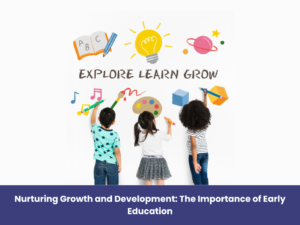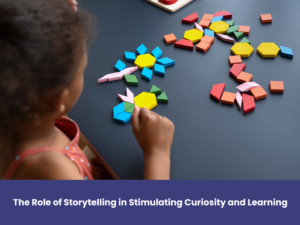In the ever-evolving landscape of education, the significance of early childhood education (ECE) has emerged as a cornerstone for unlocking the potential within our youngest learners. We at The Navyandhra Play School, one of the Preschool in Gurugram Sector 43 believe that it is during these formative years, typically defined as the period from birth to eight years old, that children undergo rapid development across physical, cognitive, emotional, and social domains. This blog delves into the critical role of ECE in shaping the future of individuals and societies, illustrating why investing in the early years is not just beneficial but imperative.
Foundations for Lifelong Learning
Early childhood education serves as the foundation upon which the rest of a child’s educational journey is built. During these early years, children are not just learning to read and write; they are developing the curiosity, problem-solving skills, and love of learning that will serve them throughout their lives. High-quality ECE programs introduce young learners to the joy of discovery in a structured yet flexible environment, fostering a positive attitude toward education that persists long after preschool.
Critical Brain Development
The argument for early childhood education is also strongly supported by neuroscience. Research indicates that the human brain develops most rapidly in the first few years of life, forming the neural connections that lay the groundwork for later cognitive and emotional functioning. Engaging children in stimulating activities during this period can enhance brain development, leading to improved memory, attention, and reasoning skills. ECE provides a rich environment filled with varied activities that encourage children to explore, solve problems, and think critically, thereby maximizing their developmental potential.
Social and Emotional Growth
ECE plays a pivotal role in social and emotional development. In preschool settings, children learn to navigate social interactions, develop empathy, and understand the value of teamwork. These early lessons in emotional regulation and communication are vital, as they lay the groundwork for building healthy relationships and coping with challenges in later life. Through play and structured activities, children learn to recognize and manage their emotions, a skill that is crucial for personal and academic success.
Reducing Educational Gaps
Early childhood education is a powerful tool for reducing educational disparities. Studies have shown that children from disadvantaged backgrounds benefit immensely from access to quality ECE programs, which can help close gaps in readiness and achievement. By providing all children with the opportunity to attend preschool, societies can make significant strides toward educational equity, ensuring that every child has the chance to succeed, regardless of their socioeconomic status.
Economic Benefits
Investing in early childhood education yields substantial economic benefits. Research indicates that for every dollar spent on high-quality preschool programs, there are long-term savings in reduced educational remediation, increased productivity, and lower rates of crime. Early education programs not only prepare children for academic success but also contribute to the development of a skilled, adaptable workforce, driving economic growth and stability.
Preparing for the Future
As the world becomes increasingly complex and interconnected, the skills required to thrive are rapidly evolving. Early childhood education equips children with the critical thinking, creativity, and adaptability they will need to face the challenges of the future. By fostering a love of learning and encouraging exploration, ECE helps children develop the resilience and innovative thinking that will be paramount in the 21st century.
A Call to Action
The importance of early childhood education cannot be overstated. It is a crucial investment in our children’s future and the well-being of society as a whole. Governments, communities, and families must work together to ensure that every child has access to high-quality early learning experiences. By prioritizing early childhood education, we can unlock the potential of the next generation, preparing them to lead, innovate, and contribute positively to the world.
Conclusion
Early childhood education is more than just a precursor to formal schooling; it is a critical period that shapes the trajectory of individuals’ lives and the fabric of society. We at The Navyandhra Play School, one of the best daycare in Gurugram Sector 43 believe that through its impact on cognitive, social, and emotional development, ECE lays the groundwork for lifelong learning, well-being, and success. By investing in the early years, we can unlock the immense potential within every child, setting the stage for a brighter, more equitable future.




